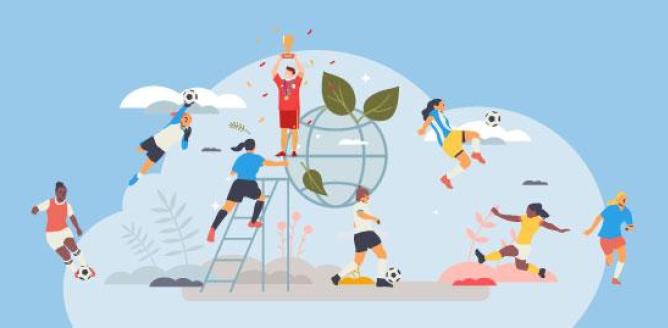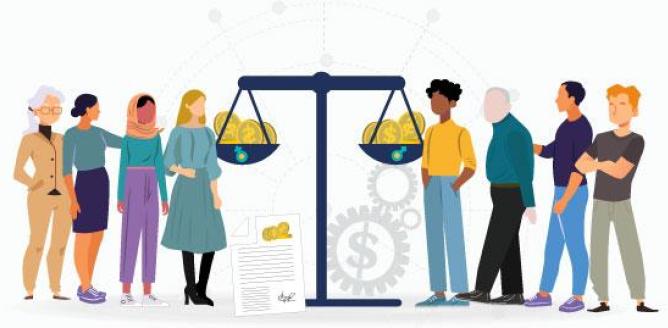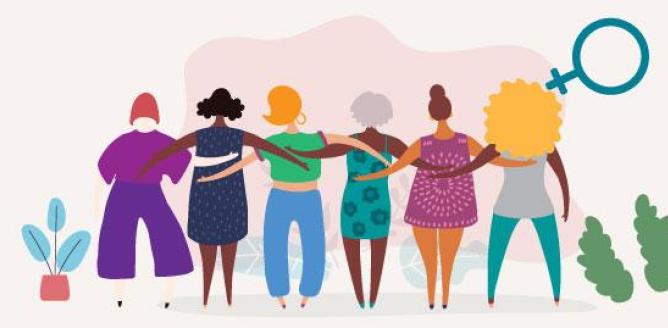Spain’s victory in this year’s FIFA Women’s World Cup was a triumphant display of athletic prowess and determination. But this final match wasn’t just about goals; it was a goal achieved – one that is kick-starting a new era of recognition and equality in women’s football and beyond. From sold-out sponsorships and unprecedented viewership soaring to the buzz echoing through social hubs, the Women’s World Cup is not just an exceptional display of athleticism, but also serves as a microcosm of women striving for recognition and equal footing worldwide.
The struggle for women’s rights and equal representation in sports is far from new. Consider the remarkable journey of the US Women’s National Team, who have finally achieved pay equity after a three decade-long battle – but remain one of the few women’s teams worldwide to do so. Beyond equal pay, insufficient media coverage obstructs visibility, restricting sponsorship opportunities and the acknowledgement of female players’ accomplishments. Such disparities in accessing crucial infrastructure hinder player development and on-field performance. The underrepresentation of women in leadership positions exacerbate the issues, contributing to decisions made without adequate female voices. High profile female athletes face greater discrimination and abuse online and offline than their male counterparts.
At the World Cup this year, Australia’s Matildas players rallied for a transformation in the way the sport is governed, for an amplification of representation, and for accountability in the face of deeply-rooted institutional inequality. The gender pay gap remains unmistakably evident, showcased by the current prize pools: the Women’s World Cup offers USD150 million in comparison to last summer’s Men’s World Cup with a stark USD440 million prize pool. These figures underscore gender-based biases that persist in how women’s professional sports teams and tournaments are valued and marketed.
FIFA has committed to taking concrete steps to improve the football ecosystem for women and girls. Whilst there is room for further improvement by considering a wider range of perspectives, such as LGBTQ+ rights and inclusivity, these plans aim to change how things work, challenge old ways of thinking, and bring about positive changes in how women's sports and athletes are seen and valued. People of all genders came together to watch this year’s tournament in record numbers and we must build on that momentum to drive greater change within the system. The role of teams like the Matildas in challenging the status quo and actively calling on influential stakeholders and fans to join forces in driving a more equitable agenda are key and we look forward to seeing how this will inform the next Women’s World Cup.
Closer to home, women's football in Hong Kong has faced its own set of hurdles. While the men's team has earned recognition, praise, and lucrative transfers, their female counterparts must juggle full-time careers alongside their passion for the game. This consistent undervaluing of female talent is also reflected in sexist attitudes towards HKFA female referees, which all speaks to the wider work needed on changing societal attitudes towards women and girls as equal actors in all aspects of the sports industry. Strides have been made, including initiatives like Project Phoenix which brought more support and opportunities, but there is still a long journey ahead to achieve equal recognition and resources that women's football in Hong Kong deserves. Only with broader public support, government recognition and funding, will women’s sports thrive -- this, in turn, will generate increased viewership, stimulate sponsorship and inspire girls to consider a career in sports.
At TWF, we recognise and celebrate the strength, courage, and tenacity of women athletes on and off the field. We are also proud supporters of next month’s Gay Games Hong Kong – an event that is modelling inclusive sports practices for the region. As Hong Kong slowly navigates its own path towards gender equality in sports, this year’s FIFA Women’s World Cup provides invaluable lessons on the power of collective agency in driving change – both within football and beyond – to forge a world where gender equality isn’t a distant aspiration but a tangible reality.
Here are four actions you can consider taking to advance gender equality in football and beyond:
1. Raise Awareness: Share female athletes' stories to boost visibility and recognition.
2. Support Local Initiatives: Get behind local projects and organisations working to promote women in sports. Whether it's attending or watching matches, volunteering, or contributing financially, your support can make a significant impact on visibility of female athletes.
3. Advocate for Equal Opportunities: Encourage discussions about gender equality in sports within your community, schools, and workplaces. Advocate for equal access to facilities, training programmes, and resources for female athletes, helping level the playing field.
4. Cultivate the Next Generation of Female Athletes: Research shows clear benefits of children engaging in sports from leadership to life skills, but girls are less likely to play sports and tend to drop out earlier than boys if they do. Encourage girls to play sports throughout their childhood and adolescence.
Get in touch at Fiona.Nott@twfhk.org.





















